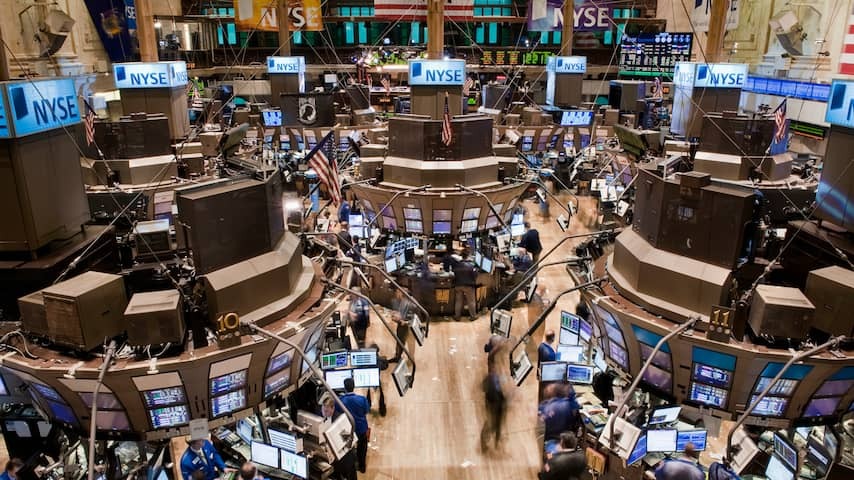
Non-Americans investing in the United States may soon have to pay a levy on their returns. This concerns investors from countries that themselves impose a levy on American companies. The Netherlands is also included.
The new tax is part of the budget plans of US President Donald Trump. He calls the plans himself ‘One Big Beautiful Bill’. The US Senate will vote on this later this month.
What exactly does the plan entail?
It concerns a levy of initially 5 percent on the return on investments. In the following three years, an additional 5 percentage points can be added each time, up to a total of 20 percent.
Much is still unclear, for example, which returns fall under this. In any case, it concerns dividends on shares. Interest on bonds and income from real estate are also likely to fall under the new rule. Any capital gains will probably remain untaxed.
The levy should apply to investors from countries that, according to Trump, have introduced an “unfair tax” for the US. For example, France has a levy of 3 percent on digital services, while Germany is considering this. These levies are detrimental to American tech companies such as Alphabet (Google) and Meta (Instagram and WhatsApp).
Countries that have agreed to a global minimum tax for large companies, including the Netherlands, may also end up in the penalty box. Trump’s plan is therefore called a ‘retaliatory levy’.
According to the American audit office, the return tax can generate 116 billion dollars (more than 100 billion euros) in ten years. Over time, the revenues will decrease, because large investors are likely to move to tax havens such as the Bahamas.
Is it already certain that the levy will come?
No, that is still unclear. The budget plans, which include the levy, have been approved by the House of Representatives, but not yet by the Senate. They will look at it in the coming weeks, but the return levy receives little criticism from senators, not even from the Democratic opposition.
If the budget plans are approved, it is not said that the levy will come. However, it offers Trump the opportunity to introduce the tax.
Investment specialist Bob Homan of ING has great doubts whether it will come to that. “It seems unlikely to me that this will go through. The US needs foreign financiers. If you tax them extra, that could harm America itself.” He suspects that the tax measure is mainly intended as a bargaining chip in negotiations with other countries about mutual levies.
What does this mean for Dutch people investing in the US?
For individuals who have invested their money in American shares, the levy does not have to have many consequences, thinks Joost Schmets of investors association VEB. This is mainly because capital gains probably remain untaxed.
Homan also thinks that the damage for individuals will be limited. “Many Dutch people invest in shares of companies that do not pay much dividend, for example Meta or NVIDIA. If you get any dividend there, it is a few percent. And then you have to pay 5 percent tax on that. Those are not large amounts.”
For professional investors such as pension funds and insurers, the consequences can be greater. For example, they also invest in government bonds. The interest they receive on this does fall under the measure.
Should we worry about our pensions?
“The measure is on the radar at pension funds,” reports a spokesperson for the Pension Federation. “A lot of return comes from the US, so it can have consequences.”
It is not expected that pension funds will take a big hit if the levy is introduced. The funds invest for periods of often decades and spread their risks. As a result, they do not always have to react immediately to sudden changes.
What are the consequences for the US itself?
The Americans themselves might be the most affected by the levy. Foreign investors have invested 40 trillion dollars in the US. The fear is that they will partly withdraw and invest their capital elsewhere, for example in Europe.
The VEB sees this happening already. “Significantly less money is going to the US than in the past. America is indeed the largest investment market, but people are increasingly looking at Europe,” says Schmets.
There is also another risk. About 30 percent of the already high American national debt is financed by foreign investors. “If countries sell their American debt paper because of the levy, the interest rate will rise sharply,” Homan explains.
That costs the American government a lot of money, because it finances many expenses with loans. Homan: “It would be so damaging to the US that the financial markets would probably call Trump back, just like with the import duties.”
In addition, it means a new dent in the confidence that investors have in the US, Schmets thinks. The country is known as a paradise for investors. But that image has been taking a hit lately with, among other things, the import duties and the rising national debt. “And now this levy again. It is a measure with which the US is again throwing the rules of the game aside.”